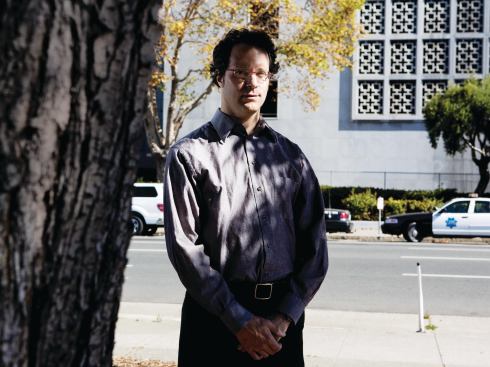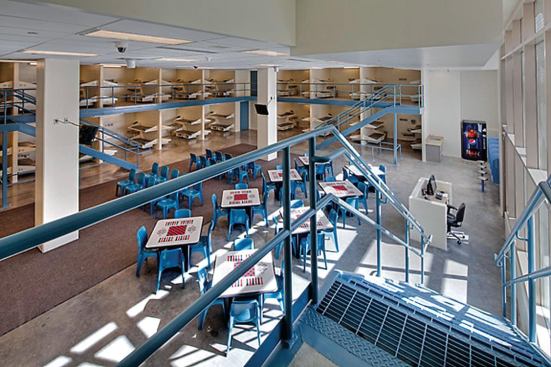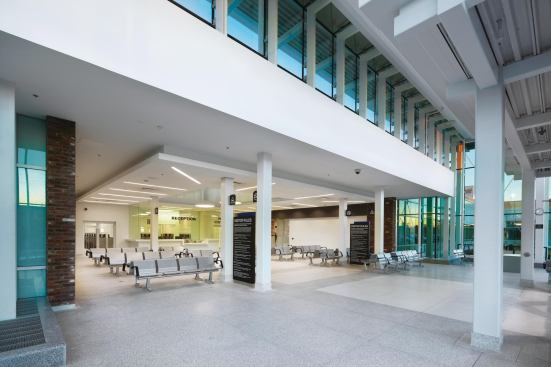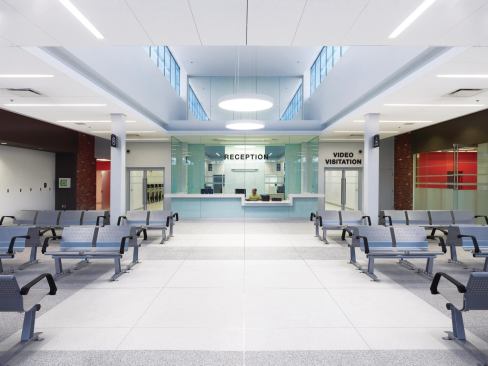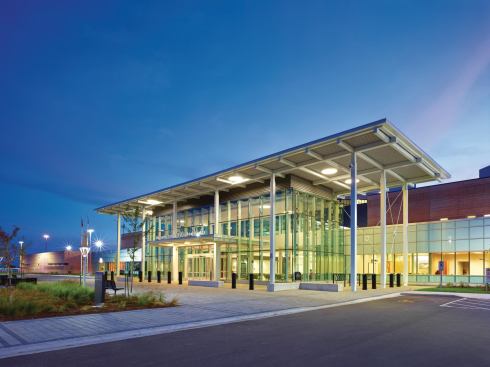Noah Kalina
Raphael Sperry stands in front of San Francisco’s Hall of Just…
KMD principal Jim Mueller, director of the firm’s justice and corrections division, describes the design in some detail: “The inmates have no contact with other inmates during the vast majority, if not all, of the day. They are only allowed out of their cells for very short periods of time for constitutionally required exercise periods. The cell construction is slightly different in that you don’t have a single door into a cell. You have a small vestibule into the cell, so there’s two doors, with a small intervening space between the corridor side and the cell side. Everything in the cell itself is attached, so you can’t move anything. In some of them, you put a grating above the cell so correctional officers can see what’s going on inside the cell from above.”
Of course, not all architecture firms that design jails and prisons also design supermaxes. For example, Kenneth Ricci, FAIA, president, and Laura Maiello, associate principal, of the New York–based specialists Ricci Greene Associates, design jails for roughly the same reasons Sperry thinks architects should shun those commissions. “Laura and I have devoted our entire lives to improving environments for the incarcerated,” Ricci says. “So, far from thinking that we would boycott, we rolled up our sleeves and decided at a very early point in our respective careers that we were going to improve the criminal justice system. We were going to bring new ideas.”
Still, Sperry argues that the criminal justice system is so corrupt that it can routinely overwhelm architects’ best intentions: “The architects who have built the prisons over the past 30 years intended to make it better. But we didn’t. What we did is far, far worse.” He sees architects as enablers, supporting a system that warehouses more and more people in remote rural prisons, despite evidence suggesting that most offenders would fare better if they were kept closer to their own communities.
Which is precisely what Ricci thinks. With some exceptions, the firm steers clear of state and federal prisons, as well as most privately built and run facilities. Most of its work is designing lockups where individuals await trial, and, as Ricci points out, still retain their constitutional rights. “We stay away from clients that are not buying what we’re selling,” he says. And what they’re selling are facilities in urban environments where they are visible and accessible, such as the Van Cise-Simonet Detention Center in downtown Denver, or the award-winning Union County Juvenile Detention Center in Linden, N. J., where daylight and connections to the community are part of the program.
Studies by the National Institute of Corrections show that the “direct supervision” model that the firm favors, says Maiello, “has reduced inmate-on-inmate violence, inmate-staff altercations, and has improved staff morale.” She also points out that neuroscience research has affirmed the obvious, that access to daylight is good for both inmates and jailers, reducing stress.
Unlike Sperry, Ricci sees an upside: “We believe in the American justice system. We don’t think its perfect, but if you’re going to go to jail, there are worse places to go.”
Similarly, in Toronto, Munn argues, “If architects don’t design these facilities, who will? Are we going to relinquish that to engineers? Okay, we’ll let the civil engineers design jails because the architects are too haughty to do it. That’s a total abdication of what I think the role of the architect is in society.”
